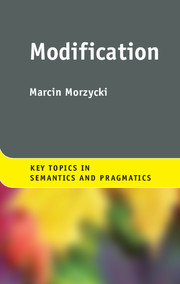4 - Comparatives and their kin
Published online by Cambridge University Press: 05 November 2015
Summary
Introduction
Florence Nightingale suffered from two afflictions:
• She had one leg shorter than the other.
• She also had one leg longer than the other.
This is according to the comedian Graeme Garden, who was lying. (Her legs were fine, both of them.) In doing so, he was playing on some relatively subtle intuitions about the semantics of the comparative. The joke would still have worked, more or less, if he had said this:
(1) She also had one leg not as long as the other.
But this would be worse, or in any case less funny than just weird:
(2) She also had one leg not as short as the other.
What the joke depends on – to kill it by explanation – is that the two afflictions entail each other, on either the original formulation or (1). The problem with (2) is that it introduces an unwelcome additional entailment: that her legs were short. Why the difference in entailments?
This chapter will examine the semantics of comparatives and their grammatical relatives, such as the equative, which positively bristle with such subtle and often vexing puzzles. These puzzles provide insight into a surprisingly wide array of issues: the nature of comparison, of course, but also the ontology of degrees, scope-taking mechanisms, ellipsis, negative polarity items, modality, focus, type-shifting, contextual domain restrictions, imprecision, and semantic crosslinguistic variation. This will also give us an opportunity to address the syntax of the extended AP in earnest for the first time.
Section 4.2 confronts the mapping between syntax and semantics in the adjectival extended projection, with special attention to the comparative. Section 4.3 provides a tour of other degree constructions, including differential comparatives, equatives, superlatives, and others. Section 4.4 is the one most directly relevant to the puzzle we began the chapter with: the question of why the entailments of apparently very similar degree constructions differ subtly. Finally, section 4.5 concludes with a discussion of the crosslinguistic picture. Throughout this chapter, I will assume a degree-based framework. This is chiefly because most of the work in this area does so – but that too is for a reason.
- Type
- Chapter
- Information
- Modification , pp. 149 - 192Publisher: Cambridge University PressPrint publication year: 2015



